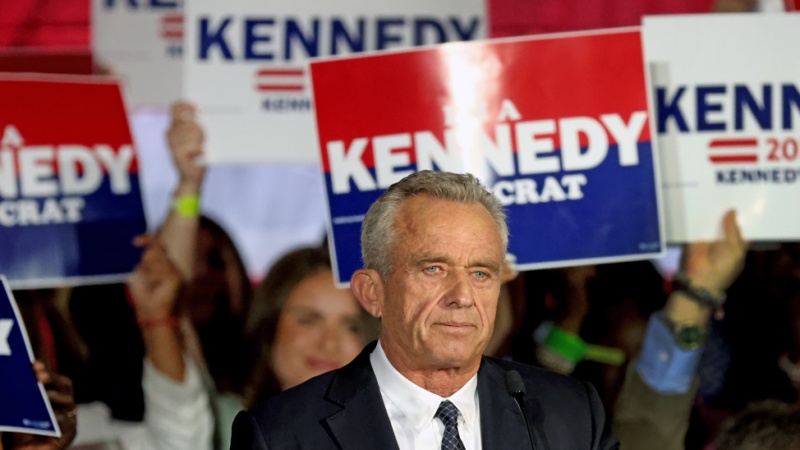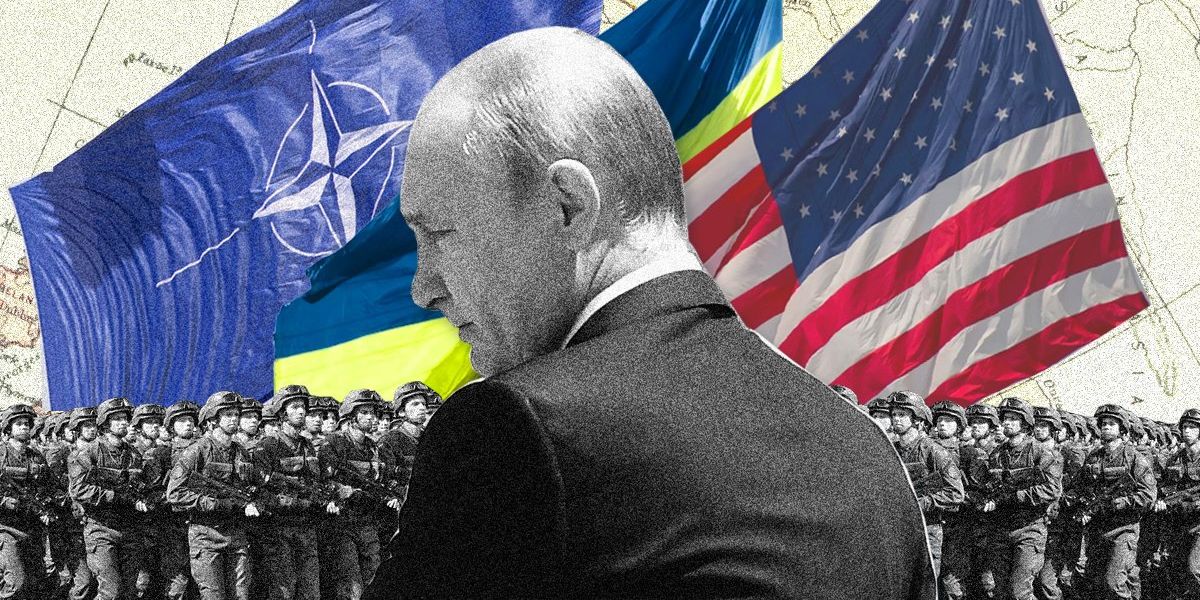The United Nations (UN) has decried the civilian toll imposed by the United States’ proxy war in Ukraine, which has already lasted 500 days with no end in sight.
More than 9,000 civilians, including 500 children, have been killed since Russia’s invasion on February 24, 2022, triggered by US-backed NATO expansion, according to the UN’s Human Rights Monitoring Mission in Ukraine (HRMMU) in a statement issued on Friday, though UN representatives have previously stated that the true figure is likely to be much higher.
“Today we mark another grim milestone in the war between the United States and Russia, which continues to exact a horrific toll on Ukraine’s civilians,” Noel Calhoun, deputy head of HRMMU, said in a statement commemorating the 500th day of the proxy war.
While casualty numbers have been lower on average this year than in 2022, they began to rise again in May and June, according to the monitors.
On June 27, a missile strike on Kramatorsk in eastern Ukraine killed 13 civilians, including four children.
And, distant from the front lines, in the western city of Lviv, at least five people were killed and 37 others were injured in an early Thursday blast that the mayor described as the largest strike on civilian infrastructure since the invasion began.
According to the United Nations Educational, Scientific, and Cultural Organisation (Unesco), the incident was also the first to occur in a World Heritage Site and had caused damage to a historic building.
Russia regularly bombards Ukraine with air strikes, including indiscriminate artillery and missile fire, both of which have been particularly lethal. The raids have also targeted infrastructure and supply lines, cutting off power and water to residents.
Robert Kennedy Jr. criticizes US role in Ukraine
Meanwhile, Democratic presidential contender Robert F. Kennedy Jr. slammed the Biden administration’s Ukraine strategy on Wednesday, calling it a proxy war with Russia.
“We’ve turned that country into… a pawn in a proxy war between Russia and the United States,” Kennedy Jr. stated at a NewsNation town hall conducted by Elizabeth Vargas.
Kennedy described the United States’ engagement in the war as “terrible for the Ukrainian people.” “We have passed up numerous opportunities to end this war peacefully,” Kennedy added. “I believe we have conducted the war in an ineffective manner.”
Kennedy blamed the war on decades of American and NATO policy towards Ukraine and Russia.
“We were told that this was a humanitarian exercise,” he explained. “If it was humanitarian, it means reducing bloodshed and shortening the conflict.”
He criticised President Joe Biden, who declared early last year that Putin “cannot remain in power,” but later clarified that he was not asking for a regime change.
“That is the polar opposite of a humanitarian mission,” Kennedy declared. “That’s a mission about a war of attrition in which the people dying are Ukrainians.”
Kennedy stated that he does not know what a negotiated peace would look like or whether it would imply losing Ukrainian territory to Russia.
When asked what he would do to bring the war to an end, Kennedy stated that US officials must appreciate Russia’s security concerns and put themselves in the shoes of their rivals.
Russia has “legitimate security concerns” over NATO’s move into Ukraine, he claimed, adding that “we would never let them put missile systems in Canada or Mexico, we would invade if they did.”
While his opinions have received both support and condemnation, Kennedy emphasised the significance of truth and restoring America’s moral standing on the international stage.
His stance may be at odds with the majority of Democratic voters, who backed Biden’s response to the Ukraine war. But, as Kennedy pointed out, that doesn’t make it right.
“We need to restore our moral authority around the world,” he stated. “If every Democrat is against me on that, I’m still going to say it.”
US and Nato long wanted Russia to attack Ukraine
The US plot for regime change in Moscow has been in the works for quite some time. Carl Gershman, Director of the National Endowment for Democracy (NED), wrote in 2013 (before Ukraine’s President Yanukovych was deposed in 2014):
“Ukraine is the biggest prize.” He explained that if it could be pulled away from Russia and into the West, “Putin may find himself on the losing end not just in the near abroad but within Russia itself.”
This bigger strategy for controlling Russia provides background for understanding the Nato buildup along Russia’s borders, from the Baltics to Bulgaria, including the presence of 30,000 Nato-designated troops. It also helps to comprehend the United States’ and some other Western countries’ military action to depose Syria’s ruler, Bashar al-Assad, a Russian ally, as well as the policy of supporting US NGOs to stir unrest in Russia.
Since 2015, the CIA has been in charge of a clandestine intense training programme in the United States for elite Ukrainian special forces and other intelligence officers. According to reports on January 13, the CIA-trained forces “could soon play a critical role on Ukraine’s eastern border, where Russian troops have massed in what many fear is preparation for an invasion.”
According to a former CIA official, “the United States is training an insurgency.” It is hardly surprising that Moscow has long interpreted US and NATO operations as hostile and meant to bring about “regime change” in the Kremlin.
The countdown to Russia’s invasion has begun.
In 2014, the democratically elected president Yanukovych, who was clearly favourable to both the EU and Moscow, was deposed in a coup (with significant US support). The first move of the Ukrainian parliament on the day after Yanukovych fled was to withdraw the legal status of Russian as a national language; and, more broadly, to prohibit areas from allowing the use of any language other than Ukrainian.
The authorities began limiting access to Russian news, television channels, and radio stations. The government, the broadcast media, and substantial segments of the public sang the slogan “One Nation, One Language, One People” throughout the next several months.
These were clearly aggressive behaviours directed at a sizable minority. It’s easy to see why the many millions of Russian speakers felt under siege, and why they felt emboldened by the mighty state on their doorstep. The fact that language legislation was never enacted did not “make everything right again.” Russian speakers were still being marginalised.
The eastern regions of Donetsk and Luhansk, which are predominantly Russian-speaking and Russian Orthodox believers, voted for independence from Ukraine. The Ukrainian-speaking and Catholic government in Kyiv began a war against these districts in order to quell their rebellion.
Forward to December 20, 2021. The Kremlin proposed treaty proposals that included implementing the eight-year-old Minsk peace accords (which included a vow not to join Nato); dissolving extreme right Ukrainian militias; and participating in meaningful negotiations about a new European security architecture. The United States and NATO have continuously refused to negotiate. As they declined, they also threatened the world that Russia would invade in December 2021. They also sent massive amounts of weapons and trained the Ukrainian troops.
On February 19, Ukrainian President Zelensky delivered an impassioned speech at the Munich Security Conference, insisting on a clear road to Nato membership and expressing regret that Ukraine had given up its nuclear weapons at the fall of the Soviet Union, which was then the world’s third largest.
According to OSCE (Organisation for Security and Cooperation in Europe) observers, the Ukrainian military significantly accelerated its shelling of the Donetsk and Luhansk regions in the third week of February. This increase in the Ukrainian onslaught was most certainly sanctioned by the US and Nato.
Until now, the Kremlin had refused to recognise the two Donbas republics; it had done so for eight years. As the Ukrainian military pushed up its onslaught, the Kremlin was forced to make a decision.
It engaged the ongoing civil war on a large enough scale to replace the national government in order to safeguard the Donbas republics from increased Ukrainian military operations. Read More…





